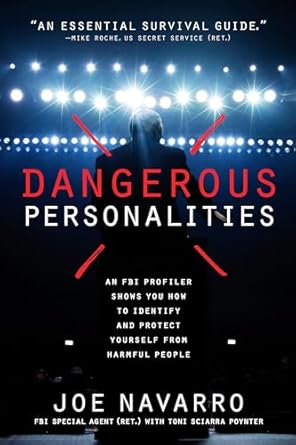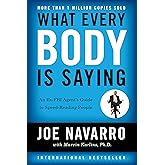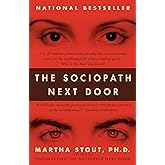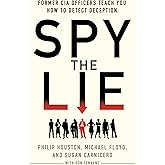
Download the free Kindle app and start reading Kindle books instantly on your smartphone, tablet, or computer - no Kindle device required.
Read instantly on your browser with Kindle for Web.
Using your mobile phone camera - scan the code below and download the Kindle app.



 Audible sample
Audible sample Dangerous Personalities: An FBI Profiler Shows You How to Identify and Protect Yourself from Harmful People Hardcover – October 7, 2014
“I should have known.”
“How could we have missed the warning signs?”
”I always thought there was something off about him.”
When we wake up to new tragedies in the news every day—shootings, rampages, acts of domestic terrorism—we often blame ourselves for missing the mania lurking inside unsuspecting individuals. But how could we have known that the charismatic leader had the characteristics of a tyrant? And how can ordinary people identify threats from those who are poised to devastate their lives on a daily basis—the crazy coworkers, out-of-control family members, or relentless neighbors?
In Dangerous Personalities, former FBI profiler Joe Navarro has the answers. He shows us how to identify the four most common "dangerous personalities"—the Narcissist, the Predator, the Paranoid, and the Unstable Personality— and how to analyze the potential threat level. Along the way, he provides essential tips and tricks to protect ourselves both immediately and in the long-term, as well as how to heal the trauma of being exposed to the destructive egos in our world.
- Print length256 pages
- LanguageEnglish
- PublisherRodale Books
- Publication dateOctober 7, 2014
- Dimensions6.2 x 0.8 x 9.3 inches
- ISBN-101623361923
- ISBN-13978-1623361921
Discover the latest buzz-worthy books, from mysteries and romance to humor and nonfiction. Explore more

Explore your book, then jump right back to where you left off with Page Flip.
View high quality images that let you zoom in to take a closer look.
Enjoy features only possible in digital – start reading right away, carry your library with you, adjust the font, create shareable notes and highlights, and more.
Discover additional details about the events, people, and places in your book, with Wikipedia integration.
Customers who viewed this item also viewed
Editorial Reviews
Review
“This book nails it! I wholeheartedly recommend it because, in many instances, we are all either victims or potential victims of dangerous personalities.” —Susan Sexton, legal scholar and former judge in the 13th Judicial District, Florida
“As riveting as a true crime thriller and as lifesaving as a self-help detox book. Every woman should read this.” —Dr. Wendy Walsh, host of Investigation Discovery Network's Happily Never After
“Having spent the last 34 years responding to crisis incidents involving dangerous personalities, I can attest to the amazing insight provided by Joe Navarro in this landmark book. Well-known characters from Hollywood fiction and real-life historical figures provide clear examples and show us the warning signs. A must-read for anyone interested in understanding and dealing with dangerous personalities.” —Gary Noesner, chief, FBI Crisis Negotiation Unit (ret.), and author of Stalling for Time
“Joe Navarro opens your eyes to these toxic individuals who wreck so many lives physically, emotionally, spiritually, even financially. What society is often unwilling to acknowledge or recognize, Joe exposes for all to see with one intention--to save lives.” —Laura Quiñones Urquiza, diplomat in Criminology, University Institute of Argentine Federal Police
“There are a variety of tools and books to assess the risk of violence, but few books are as accessible and useful in the everyday life.” —Michel St-Yves, forensic psychologist, Quebec
“A must-read. Readers will learn how to avoid the pitfalls of trust, fraud, and deceit and the emotional tolls dangerous personalities levy on their victims.” —Werner U. Spitz, MD, forensic pathologist, Michigan
About the Author
Toni Sciarra Poynter has more than 25 years experience in publishing as a consultant, an author, a collaborator, and an acquisition editor.
Excerpt. © Reprinted by permission. All rights reserved.
"IT'S ALL ABOUT ME"
THE NARCISSISTIC PERSONALITY
OF ALL THE LABELS THAT are carelessly bandied about, narcissist is probably one of the most overused and least understood. It's a popular term with ancient origins (the Greek myth of Narcissus, who fell in love with his reflection), yet what it really means can be perplexing.
Many people think of a narcissist as someone who perhaps names hotels after himself or always wants to be in the spotlight--maybe a character on reality TV. Certainly plenty of people love the limelight. But the kind of narcissist we're talking about goes far beyond self-promotion by acting in ways that are toxic and dangerous. From this point forward, I will use the terms narcissist and narcissistic personality interchangeably.
Narcissistic personalities care only for themselves, their needs, and their priorities. While you and I appreciate attention, the narcissist craves it and manipulates people and situations to get it. While you and I work hard to be successful, the narcissistic personality connives to succeed and may cheat, lie, embellish the truth, or scheme to get ahead, uncaring of how others are affected.
These personalities can be found in every level of our society, right up to the top, where history's grim record shows that they've started wars and exterminated populations. But they're also found in the cubicle or on the bar stool next to you, at home, on the team, in the classroom, and even in your spiritual community.
"Cinderella," the classic tale of the cruel stepmother and stepsisters obsessed with themselves, epitomizes the exploitative nature of narcissism. These are people who live selfishly at others' expense. The most famous version of Cinderella is the Disney one, but historically there are more than 300 variants of this tale.1 Apparently, many cultures have seen fit to warn us about this personality, and with good reason.
Like Cinderella's stepmother and stepsisters, these personalities see few faults in themselves and view anyone who doesn't value them as highly as they value themselves as nobodies to be denigrated or tormented. And while Disney's Cinderella enjoys a magical happy ending, in real life there's no fairy godmother or prince to save us from these bullies. When we're dealing with the narcissistic personality, our protection is up to us.
THE WAY OF THE NARCISSISTIC PERSONALITY
Narcissism isn't the same as confidence. True confidence reflects admirable strength of character. The narcissist's confidence is really arrogance--a character flaw leading to grandiose ideas and the relentless pursuit of the narcissist's desires, often at others' expense.
Some grandiose ideas can be good for society. Look at the advances that came from Edison's vision of a world powered by electricity and Kennedy's mission to land on the moon, to name just two. Walt Disney, too, had a grandiose idea: a "magical" place for children and adults to enjoy themselves--which would become Disneyland, Disney World, and Epcot.
The narcissist's grandiosity is entirely different. Consider Jim Jones, whose vision for Jonestown in Guyana was to create a place where people would pay tribute to him as a supreme individual. The price of admission? Your life savings and your free will. You also had to be willing to kill your own children and yourself by drinking cyanide-laced Kool-Aid along with more than 900 other followers. 2
In the first instance, a grandiose idea leads to a place where we can fulfill our dreams. In the other, our worst dreams are fulfilled. The difference isn't one of ideas but of personality type and character flaws. One seeks happiness for all. The other seeks adoration and happiness only for himself. This is why I want to warn you about the defining traits of this dangerous personality.
Egocentric
As children, we all go through a phase where we feel we're the center of the world, with a high sense of entitlement. Narcissistic personalities essentially never outgrow this phase. Their childlike need to be constantly attended to leads them to do everything from the ridiculous to the unthinkable to be the center of attention or to get their way.3
They'll arrive late to meetings, parties, and family events, delaying activities, making others wait and even make sacrifices on their behalf. They may storm in or make dramatic entrances just to get everyone's attention. They have no hesitation about letting you know they're the smartest person in the room. Some are shameless name-droppers, habitually mentioning whom they know, whom they lunched with, and on and on, making sure you know that they associate with important people.
Looking good in every sense is vital to narcissists. You may see them preening in mirrors. They're highly aware of their physical appearance (which can lead to fitness or cosmetic surgery fanaticism) and use their presence to have an impact on others, whether it's making sure all heads turn at a party or ensuring everyone sees they've got the best, biggest, or most expensive everything.
Some narcissistic personalities present themselves as being very accomplished, but in fact they've accomplished little--which doesn't stop them from acting superior and seeing themselves as a great inventor, artist, musician, thinker, leader, or singer. When things don't go their way, they blame everyone but themselves. Maybe these individuals made mistakes, are incompetent, or just aren't well liked, but you'll never hear that from them. No, the system, society, the boss, the professor, the electorate, the world is against them. We simply fail to see how great they are.
When others don't treat narcissists as the special person they deem themselves to be, their reaction is infantile rage that ranges from sulking to whining to seething and, sometimes, to violence. They can berate and blame with impunity, hold grudges, and be vengeful--that is their nature.
Overvalues Self, Devalues Others
Because they see themselves as special and unique, narcissistic personalities tend to see everyone else as either marginal or inferior. They become masters at putting others down in order to elevate themselves-- they are the bullies of the world. That's how businesswoman and hotelier Leona Helmsley got the moniker "the Queen of Mean."4 But she wasn't just mean. She was by all accounts a bully toward anyone she deemed below her-- no different from the kind of bullying we see today in schools.
If bullying seems to be on the rise and the consequences of bullying (absenteeism, depression, anxiety, suicide) are becoming ever more dramatic and extreme, it is no accident. Many clinicians are of the opinion that as narcissism has increased in the general population, so has bullying, which is a common characteristic of the narcissistic personality.5 It seems persistent bullying and narcissism go hand in hand.
These days, the narcissistic personality doesn't even have to be with you to bring you down. On September 9, 2013, 12-year-old Rebecca Sedwick jumped to her death from an abandoned cement plant in Polk County, Florida, allegedly as a result of being tormented online (cyberbullied).6 This is what can happen when people consistently overvalue themselves and devalue others--a common narcissistic trait.
Narcissistic personalities have an uncanny ability to identify weakness or insecurity in others and use it to put others down or make themselves look better. It may be something as subtle as noticing your new watch and then calling attention to their much more expensive one. At a cookout, they'll say things like "No steaks; only hamburgers?" loudly enough for all your guests to hear. They don't care how you feel; they thrive by belittling others.
They are the kind who, sensing someone's nervousness before giving a speech, would say, "It must be tough to follow a great speaker--I wouldn't want to be in your shoes." I know, because this happened to me right before speaking to a group in New Orleans.
Sometimes, these personalities betray their true nature by berating their spouses or children in public, at social occasions, or at kids' sporting events. If this is what they do in public, imagine what they do at home when outsiders aren't looking.
Or they'll make contemptuous comments with caustic indifference about how stupid or incompetent somebody is. They'll bark commands at a passing waiter for service and then turn to you with a smile as if nothing happened. At an event I attended years ago in Las Vegas, a speaker screamed at the hotel staff in front of about 150 attendees, "I didn't come all this way to look like a fool--fix it!" when the microphone stopped working. Everyone's jaw dropped. Such behaviors should serve as telltale clues to all who see or receive such treatment that they are in the presence of a narcissistic personality.
Instead of Empathy, You'll Find Arrogance and Entitlement
A person who feels superior to others will have limited ability to empathize. While most of us learn as children how to understand others' feelings and how our actions affect others, with these personalities, sympathy or understanding for your situation and feelings is limited or nonexistent. You could be in crisis and somehow you still won't be the center of attention, because nothing must detract from the needs, wants, and desires of narcissists. You may have a sick child you need to attend to, but they still want you to take them shopping at the mall. In fact, narcissistic personalities view revelations about needs, illness, or mistakes as weaknesses in others that confirm their superiority and justify their devaluing behaviors.
Some narcissists telegraph their arrogance and haughtiness; it's palpable in how they speak, react, and even carry themselves. Others recognize the need to at least appear to be empathetic. Their empathy, however, has an agenda--such as when a boss calls you at home when you're sick to ask how you're feeling but is only really concerned with when you're coming back to work. It may seem as if they care, until you discover how superficial and infrequent their interest in your life and well-being actually is--except when it affects them.
Still others betray their hypervaluation of themselves only when there is a crisis. Then their egocentric perspective on the world percolates to the surface.
On April 20, 2010, BP's Deepwater Horizon oil rig exploded in the Gulf of Mexico, killing 11 rig workers and causing the largest accidental marine oil spill in the history of the petroleum industry (or the world, for that matter). About the disaster and its effects on others, Anthony "Tony" Hayward, BP's CEO, remarked to a reporter on May 30, "We're sorry for the massive disruption it's caused to their lives. There's no one who wants this thing over more than I do. I'd like my life back."7 The term jaw- dropping would apply here. We're talking about an environmental disaster of historic proportions coupled with the deaths of 11 humans, and he wants his "life back." Sometimes, it takes a crisis to reveal those narcissistic traits that say, "Nothing is more important to me than me."
The more you talk to narcissistic personalities, the more you get the sense that they don't care about you. They're not very inquisitive about you. What they really want is for you to pay attention to them and to their needs and desires, or to do their bidding. But because they're hyperaware of how they appear to others, they can, in many cases, modulate and moderate their behavior to control how they're perceived. They can do this for a while, but in the end, their true sentiments will come out.
Narcissists act nice to get their way, not to express true caring. In the movie Goodfellas, rising mobster Henry Hill (played by Ray Liotta) uses attentiveness to court Karen, his future wife, treating her to great restaurants, front-row seats, the best food, the best wine, no waiting in line. She is the focus of his total attention. Once they're married, boom, it's over. The narcissist worked for and got what he wanted, so what's the problem when he comes home drunk, smelling of other women? What his wife wants doesn't matter; the only thing that matters is what he feels he's entitled to. He has used attentiveness to ensnare, but he doesn't really care.
In real life, financier Bernard Madoff used connections and friendships to ensnare trusting people in his Ponzi scheme. The crushing difference between what they expected and what they got is the terrible truth of relationships with a narcissistic personality. You expect to be treated as an equal, as a friend, but a narcissist has no equal. For the narcissistic personality, friends are functional. They serve a purpose: to provide the narcissist with something wanted or needed.
The most dangerous narcissists are those whose utter lack of empathy and high levels of grandiosity verge on psychopathy: the ability to do harm without remorse. They have no conscience and will exploit others emotionally, financially, and sometimes physically. If you please them, you are convenient; if you displease them, you're more than an inconvenience-- you're something they must debase or perhaps destroy. When we read about a parent who incarcerates, abandons, or murders his or her own baby so that the parent can have a good time and party, what we're dealing with, first and foremost, is a narcissistic personality: someone who overvalues himself or herself and devalues others with reptilian indifference.
That reptilian indifference is what we see in major cities and elsewhere in the phenomenon known as knockout assaults, in which the unsuspecting (including elderly women) are targeted for a blindingly fast punch without provocation, just to see if the person can be knocked out (usually causing a concussion) with a single hit. To behave with such callousness, one has to be able to devalue others--a trait the narcissistic personality has in abundance.
Takes Shortcuts, Bends Rules, Violates Boundaries
Because they feel entitled, narcissistic personalities may feel they don't have to work as hard as others, that they can take shortcuts to get what they want, or that the rules don't apply to them. This is how you end up with politicians who have affairs, father children, and attempt to deny their paternity (former US senator John Edwards); turn public funds into their own private piggy bank (former US representative Jesse Jackson Jr.); or are willing to sell political favors for a price (former governor of Illinois Rod Blagojevich).
One executive told me about hiring a manager who was fairly successful, but who then suddenly started flirting with his female co-workers. It was as if he just couldn't help himself with the sexual overtures. Every employee knew such behavior was not tolerated, but when he was confronted, he was enraged, maintaining that nothing in his behavior violated the terms of his contract and that he was merely being friendly. Remember, narcissists don't see that they're doing anything wrong; they feel entitled. They just get angry that someone's pointing out their inappropriate behavior.
Product details
- Publisher : Rodale Books; American First edition (October 7, 2014)
- Language : English
- Hardcover : 256 pages
- ISBN-10 : 1623361923
- ISBN-13 : 978-1623361921
- Item Weight : 1.1 pounds
- Dimensions : 6.2 x 0.8 x 9.3 inches
- Best Sellers Rank: #817,582 in Books (See Top 100 in Books)
- #621 in Personality Disorders (Books)
- #1,283 in Abuse Self-Help
- #1,703 in Popular Psychology Personality Study
- Customer Reviews:
About the author
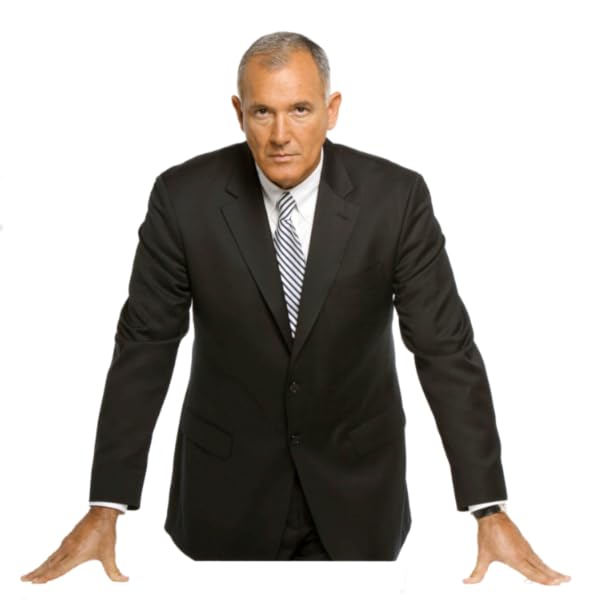
For 25 years, Joe Navarro worked as an FBI special agent in the area of counterintelligence and behavioral assessment. Today he is one of the world’s leading experts on nonverbal communications and lectures and consults with major corporations worldwide. He is an adjunct professor at Saint Leo University and frequently lectures at the Harvard Business School.
He has appeared on major U.S. and International media outlets including CNN International, Fox News, BBC, The Times (UK), Crossfire with Chris Matthews, CBS, NBC, NPR Radio, The Washington Post, and The Times (UK), on topics as varied as body language and management practices.
Jack Canfield, author of Chicken Soup for the Soul called him “a world class observer” and David Givens praised him as “a master of reading nonverbals.” Joe is a frequent presenter and Keynote speaker as well as writer; his articles have been featured in Psychology Today and The Washington Post.
Joe is the international best-selling author of What Every Body is Saying which has been translated into 29 languages, and Louder Than Words, which The Wall Street Journal acclaimed as “One of the six best business books to read for your career in 2010.”
Customer reviews
Customer Reviews, including Product Star Ratings help customers to learn more about the product and decide whether it is the right product for them.
To calculate the overall star rating and percentage breakdown by star, we don’t use a simple average. Instead, our system considers things like how recent a review is and if the reviewer bought the item on Amazon. It also analyzed reviews to verify trustworthiness.
Learn more how customers reviews work on AmazonCustomers say
Customers find the book easy to read and informative. It helps them identify difficult personalities and dangerous personality types. The book provides advice on safety in a dangerous world and how to protect yourself from predators. Readers appreciate the checklists, which are organized and helpful.
AI-generated from the text of customer reviews
Customers find the book easy to read and helpful for understanding personality types. They describe it as a clear, concise summary that is easy to understand. The premise is excellent and provides useful information about dangerous personalities in layman's terms.
"This is a wonderful book that allows one to assess and understand other people's personalities. It's written by an FBI agent who knows his stuff...." Read more
"A useful and worthwhile book that helps the "average" person to honor his or her instincts against those destructive people who often enter..." Read more
"...After a few weeks of gifting, she came back and told me the book is very mind opening and was a perfect match for her study interests...." Read more
"...Read this... Buy it with The Gift of Fear and Mr. Navarro's other great book What Every Body Is Saying. They may just save your life." Read more
Customers find the book informative and eye-opening about personality disorders. They find it practical and useful for identification. The book provides thorough descriptions of types of people with these disorders, making it a good resource for young adults and business management. It allows readers to understand and assess others better. Overall, customers describe the book as empowering and thought-provoking.
"This is a wonderful book that allows one to assess and understand other people's personalities. It's written by an FBI agent who knows his stuff...." Read more
"A useful and worthwhile book that helps the "average" person to honor his or her instincts against those destructive people who often enter..." Read more
"...and told me the book is very mind opening and was a perfect match for her study interests. Very illustrative. Would definitely recommend!!!" Read more
"...He aims to give you the tools to identify these individuals and at least a rough idea of exactly how damaging these people can be in your life..." Read more
Customers find the book helpful for identifying difficult personalities in their lives. It helps them understand common personality disorders and provides a checklist for narcissists. The book is described as a fascinating read that helps readers understand their own personalities.
"This is a wonderful book that allows one to assess and understand other people's personalities. It's written by an FBI agent who knows his stuff...." Read more
"...it a point to reinforce their important message: "It's NEVER okay for others to abuse, use, or harm you, and you have the right to call them on..." Read more
"...In this book Mr. Navarro provides a checklist for narcissists and three other particularly dangerous personality types...." Read more
"...of people who do the most harm, and really could help readers identify toxic personalities in their lives before it’s too late...." Read more
Customers find the book helpful for learning safety tips in a dangerous world. It provides advice on identifying danger and how to protect yourself. Readers mention it's a must-read for staying safe, providing useful survival tools for the layperson.
"...in the book are especially helpful, as they range from minor concerns to major dangers...." Read more
"...He also gives advice on how to protect yourself...." Read more
"...The book also comes with safety resources for help if needed at the hand." Read more
"...is practical to apply in real life and helps normal people to protect themselves from dangerous personalities. Easy to read, useful to use." Read more
Customers find the checklists in the book helpful. They say it's well-organized and makes identifying toxic people easy. The checklists are great and organized from notes and edited for spelling and grammar.
"...The checklists are thorough and some of the stories are disturbing, but that's the point...." Read more
"...the long checklists in the book are especially helpful, as they range from minor concerns to major dangers...." Read more
"...There are checklist for you to use as well as suggestions on how to protect yourself and others...." Read more
"...The check lists were key... I realized how scary someone from my past was.. a legit predator and I recognized it at the time just by listening to my..." Read more
Reviews with images
An amazingly simple comprehensive read.
Top reviews from the United States
There was a problem filtering reviews right now. Please try again later.
- Reviewed in the United States on October 11, 2024This is a wonderful book that allows one to assess and understand other people's personalities. It's written by an FBI agent who knows his stuff. I've gifted it more than once to family/friends who have either been terribly damaged by someone who exhibits one of these personalities (so they can see they're not at fault and can start moving forward again); or who seem headed towards a minor disaster. People have appreciated the book.
- Reviewed in the United States on October 17, 2014A useful and worthwhile book that helps the "average" person to honor his or her instincts against those destructive people who often enter their lives. Wouldn't it be wonderful if we didn't need such survival guides, but the world is what it is, and it's better to be educated and prepared when these frightening predators and leeches come our way. Joe Navarro's experience as an FBI agent gives the book power and authenticity, and his co-author Toni Sciarra Poynter helps the writing to feel accessible, elegant, and informal. This isn't a clinical book which diagnoses illness and borderline personalities: it's instead a guide for those who encounter such problematical and often terrifying people, showing case studies and possible solutions to such entanglements. The checklists are thorough and some of the stories are disturbing, but that's the point. What comes across most clearly is that often (too often) we ignore our instincts against people who seem "off" to us, or who are irritating or bullying. The culture expects us to "get along," and often this means dismissing our gut-- which tells us frequently, "get away from this person." Navarro's book encourages readers to honor their feelings and to respect their conscience when they sense they are in a bad relationship, work environment, or unpleasant public encounter. There's a list of resources for those who have been abused or who are in peril in the back of the book, and the authors makes it a point to reinforce their important message: "It's NEVER okay for others to abuse, use, or harm you, and you have the right to call them on it, to escape, to call the police, or to tell them to stop." I don't think this book is only for those who have already suffered: it might help potential victims to recognize the warning signs of dangerous people BEFORE a crisis unfolds, and save themselves a lifetime of suffering, regret, or pain. Recommended.
- Reviewed in the United States on March 13, 2024I actually purchased this book as a gift for one of my nieces who wishes to study criminal psychology. After a few weeks of gifting, she came back and told me the book is very mind opening and was a perfect match for her study interests. Very illustrative. Would definitely recommend!!!
- Reviewed in the United States on October 30, 2014Over the last few years I have encouraged countless people to read one book to learn to protect themselves...The Gift of Fear, by Gavin DeBecker. Now I have another book to insist people read, Joe Navarro's Dangerous Personalities. I happen to have at least one person in my life that fits the narcissist personality to perfection and I have spent a great deal of time reading books about that affliction to learn to protect myself and to identify that trait in others. In this book Mr. Navarro provides a checklist for narcissists and three other particularly dangerous personality types. He aims to give you the tools to identify these individuals and at least a rough idea of exactly how damaging these people can be in your life (are they a destructive nuisance or a real danger to your life). Read this book even if you feel like you don't have these people in your life! You can never be to careful. Give this book to kids in high school or entering college. Facing a dangerous personality alone and unarmed with tools to identify them is how people get in unhealthy relationships, is how they fail to see abusers, it's how they fall prey to predators, and how they miss the warning signs for dangerous loners. Will this book fix all your problems? No. Will it provide you with the right tools to evaluate people in your life and identity the one from whom you must perfect yourself? Absolutely! Read this... Buy it with The Gift of Fear and Mr. Navarro's other great book What Every Body Is Saying. They may just save your life.
- Reviewed in the United States on January 17, 2025This book here will have you on the edge of your seat, especially if you live in a densely populated area like New York City. The more people around the higher the chance of you encountering a dangerous personality. Thankfully this book helps you identify and avoid them
- Reviewed in the United States on December 19, 2024I read this books expecting nothing from it and gained so much from it. It helped me decide who would be a better candidate for president. with the election coming up I kept noticing VP Harris kept going on about “me Me me me”. And ignoring everything that’s going on. I’m proud to say I voted Trump for the first time ever!
Top reviews from other countries
 Debbie AbramReviewed in Canada on November 25, 2023
Debbie AbramReviewed in Canada on November 25, 20235.0 out of 5 stars Great reading
Very helpful book …thank you has help keep me safe
 KamalReviewed in Brazil on October 18, 2021
KamalReviewed in Brazil on October 18, 20215.0 out of 5 stars Oustanding Book
I received the book a week ago and finished reading it today. Before going further, please allow me to say that if you think you were taken advantage of in the past or are worn down emotionally by toxicity as you are reading this comment, then get and read this book without hesitation.
I must confess that I don't regret buying the book as it helped me realize that I made the right decision in the past, by distancing myself from certain individuals and situations. I would blame myself for doing so, because it felt like I was missing something or I hurt other people's feelings. However, Joe Navarro, through this amazing work, taught me not to feel guilty for wanting to protect my space, body, finances and emotions. Yes, I did quit jobs, left relationships and avoided certain places and people (including family and friends), although at times I did not act promptly. But, I am happy that I removed myself from abuse and manipulation anyway.
That being said, my knowledge in human psychology is still at the embryonic stage, even after having read this book and other materials in the subject.
 Tural AliyevReviewed in Germany on December 8, 2023
Tural AliyevReviewed in Germany on December 8, 20235.0 out of 5 stars Good book
I like it
-
 njustReviewed in Spain on July 30, 2022
njustReviewed in Spain on July 30, 20225.0 out of 5 stars Muy buen libro
Es el segundo libro de este autor y me encantan, aprendes mucho sobre los seres humanos, su comportamiento etc
No te convertirás en un experto pero si ayuda a cuidarte de gente toxica tanto en lo personal como en el trabajo
-
 Stuart Norma CoreenReviewed in Italy on September 25, 2017
Stuart Norma CoreenReviewed in Italy on September 25, 20175.0 out of 5 stars A really interesting and useful book
This book takes a look at 'personalities' from the standpoint that people can be and sometimes are dangerous - so beware and look after yourself! These people may be well known to you (spouse, your own kid or a neighbor) and for this reason we find excuses for their behavior. The bottom line is WATCH OUT!



